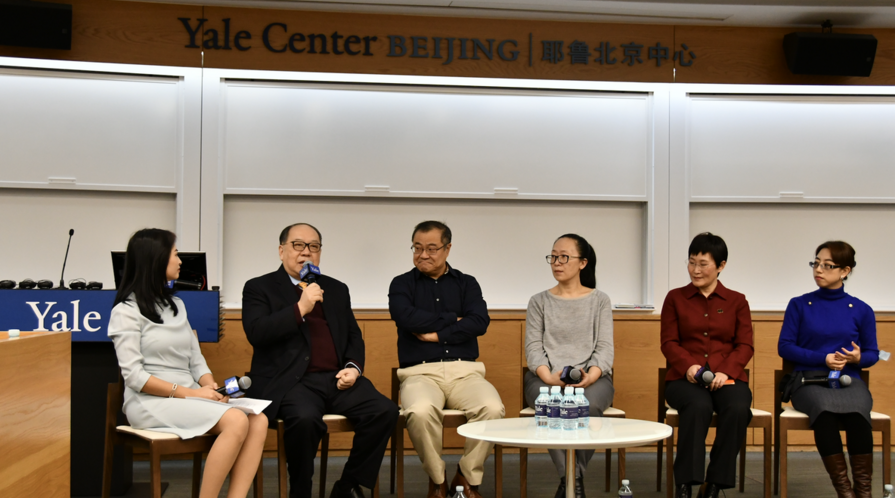Panel Discussion on the Future of International Higher Education in China
Panel Discussion on the Future of International Higher Education in China
On December 26th, a group of American university center directors gathered at the Yale Beijing Center to discuss the future of international higher education in China. Josh Cheng, SCPKU Executive Director, introduced Stanford’s efforts to support students, no matter what nationality or race, continuing their study and research during this turbulent year.

According to a local report there are more than 600,000 students from China currently studying in the US and millions of Chinese families are planning to send their kids to pursue their education in North America.
However, the deterioration of Sino US relations in recent years, combined with uncertainties from the pandemic around the globe had had a profound impact on those students who are already studying in the US and parents who are preparing to send their kids to study in America.
Stanford Center at Peking University, along of other peer institutions in China, had been approached by various groups seeking perspectives and insights on critical issues: Is it still safe and sound to send kids to study in America? Are there indications that US universities and schools are closing their doors to Chinese students? Should parents and students start to seek other options, perhaps study in the UK or other countries?
In response to such concerns and with a desire to serve local communities, a round table panel discussion was held at the Yale Center of China in Beijing on Dec 26, 2020. Stanford’s Executive Director, Josh Cheng, was among the nine directors of American education institutions with Centers in China who participated in the discussion. Others (shown in the photo) participating in person were Yale, Chicago, Cornell, Notre Dame, and Columbia. Representatives from Harvard, Wharton and Princeton participated virtually.
The directors shared with their personal experiences as well as institutional practices to directly address many concerns expressed by Chinese parents and students. They believe US universities and schools will continue to welcome Chinese students, both in undergraduate and post graduate programs. Having international students is an inseparable part of the global extension effort by almost every American educational institution.
Stanford University just issued a statement in support of Stanford's international students and scholars, explicitly including those from China.
Josh Cheng shared his perspectives on the safety and security concerns with Chinese parents. Using practices at Stanford, and other American universities, Mr. Cheng reiterated that American universities always make the safety and security of its students, staffs and faculties top priority.
The panel discussion was well attended, and it was agreed that if the pandemic policy of limiting visitors by PKU is lifted in near future, the Stanford Center at Peking University could serve as next host of the continuing discussion on US China Education.

